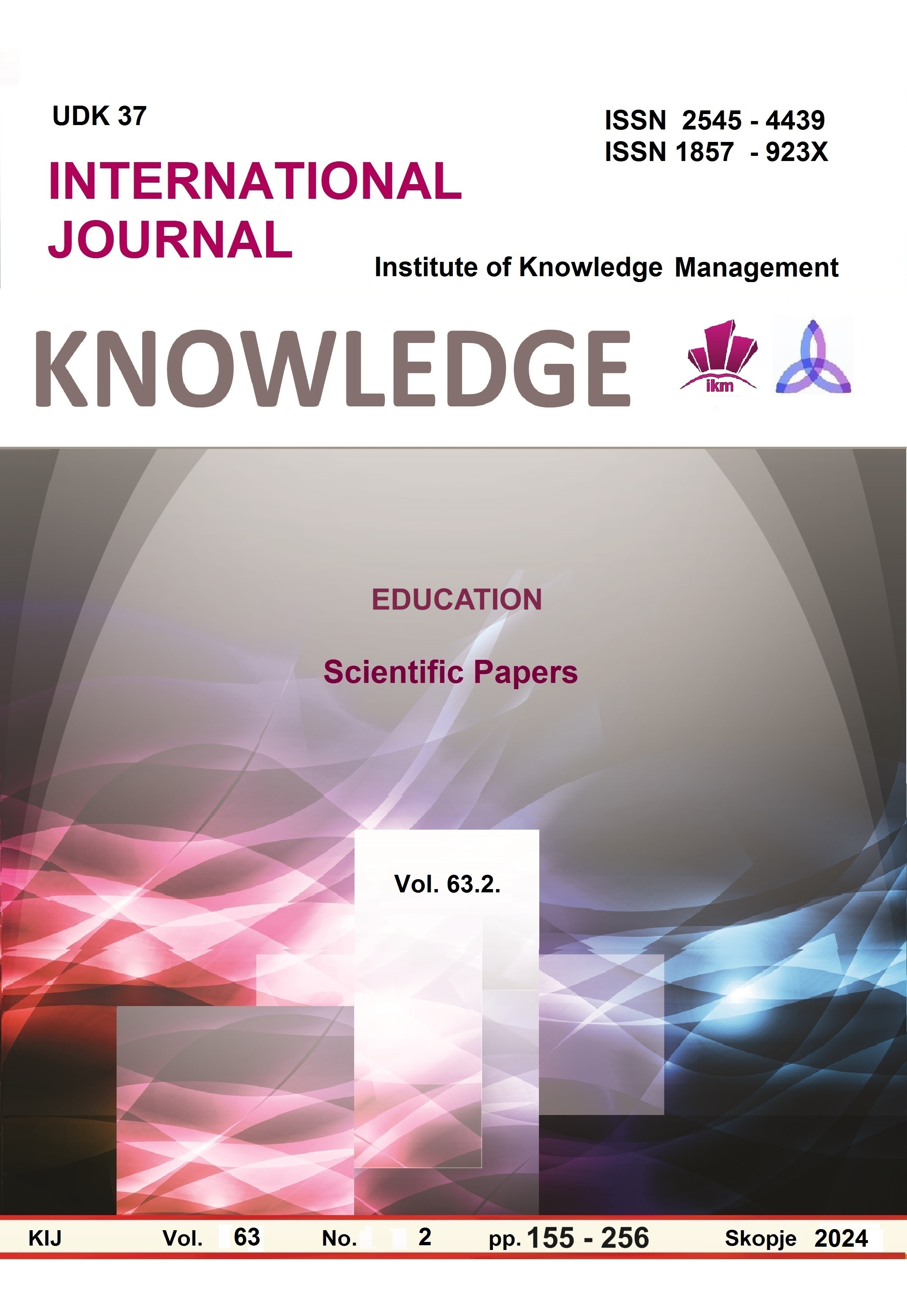ИЗСЛЕДВАНЕ НАГЛАСИТЕ НА УЧЕНИЦИТЕ В НАЧАЛНОТО УЧИЛИЩЕ ЗА РАБОТА СЪС СИСТЕМАТА НА КАРЛ ОРФ
RESEARCH ON PRIMARY SCHOOL STUDENTS' ATTITUDES TO WORK WITH KARL ORFF'S SYSTEM
Author(s): Margarita Terzieva, Svetla T. Terzieva-SarievaSubject(s): Social Sciences, Education
Published by: Scientific Institute of Management and Knowledge
Keywords: Karl Orff system;elementary school
Summary/Abstract: The article analyzes the ability of elementary school students to work with Karl Orff's system, known in Bulgaria mainly in a theoretical aspect. Through a survey, the possibilities for using this methodology in Bulgarian conditions are checked. It is analyzed: - the perception of a lyrical work as a unity of content and form; - making sense of the topic as a focus of time, place and action; - finding the intersection of speech, dance and music within a work; - discovering one's own creative possibilities and talents Through a specific lyric work, the students cope with a number of challenges and show a sense of the artistic syncretism inherent in it. At the same time, the imaginary situations are too close to the real ones. This is how we gradually arrive at ideas that inspired pedagogical practice in the first half of the 20th century and correspond to the educational pedagogy of today. Creating an author's methodology, Karl Orff is convinced that children should have music specially designed for playing music, accessible for their age and corresponding to the child's psyche. Elementary music is genetically related to speech and movement. In this way Orff makes the basis of his approach, which leads us to believe that the initial attempts at making music are a correct step in the direction of mastering his system. The research carried out as an integral part of a future research strategy allows us to claim that: - Karl Orff's methodology can find a place in teaching at different school levels if a precise toolkit is prepared for its application; - The unity of speech, music and dance can prove to be a successful way to develop creative forces, to overcome mental stress and to focus interest on experiences that lead to positive attitudes and persistence in overcoming cognitive and life's obstacles; - Third graders enjoy the opportunity to "unbundle" the curriculum and integrate the arts into a unified process; - Working as a team, teachers could achieve better educational outcomes than students by applying complex methods and presenting the content of one academic discipline in an aesthetically provocative way, using the tools of another academic discipline.
Journal: Knowledge - International Journal
- Issue Year: 63/2024
- Issue No: 2
- Page Range: 251-256
- Page Count: 6
- Language: Bulgarian

